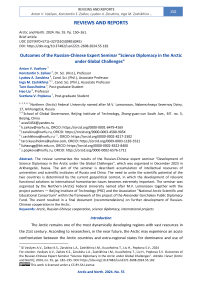Outcomes of the Russian-Chinese Expert Seminar “Science Diplomacy in the Arctic under Global Challenges”
Автор: Vasilyev A.V., Zaikov K.S., Zarubina L.A., Zashikhina I.M., Kuusiholma T., Liu H., Popkova S.V.
Журнал: Arctic and North @arctic-and-north
Рубрика: Reviews and reports
Статья в выпуске: 55, 2024 года.
Бесплатный доступ
The review summarizes the results of the Russian-Chinese expert seminar “Development of Science Diplomacy in the Arctic under the Global Challenges”, which was organized in December 2023 in Arkhangelsk, Russia. The aim of the seminar is described: accumulation of intellectual resources of universities and scientific institutes of Russia and China. The need to unite the scientific potential of the two countries is determined by the current geopolitical context, in which the development of relevant functional solutions to international humanitarian issues becomes extremely important. The seminar was organized by the Northern (Arctic) Federal University named after M.V. Lomonosov together with the project partners — Beijing Institute of Technology (PRC) and the Association “National Arctic Scientific and Educational Consortium” within the framework of the project of the Alexander Gorchakov Public Diplomacy Fund. The event resulted in a final document (recommendations) on further development of Russian-Chinese cooperation in the Arctic.
Arctic, Russian-Chinese cooperation, science diplomacy, international projects
Короткий адрес: https://sciup.org/148329530
IDR: 148329530 | УДК: [327(470+571)+327(510)](985)(045) | DOI: 10.37482/issn2221-2698.2024.55.182
Текст научной статьи Outcomes of the Russian-Chinese Expert Seminar “Science Diplomacy in the Arctic under Global Challenges”
DOI:
The Arctic remains one of the most dynamically developing regions with vast resources in the 21st century. According to researchers, in the near future, the Arctic may experience an acute confrontation between the Arctic countries and extra-regional states for dominance and use of
-
∗ © Vasilyev A.V., Zaikov K.S., Zarubina L.A., Zashikhina I.M., Kuusiholma T., Liu H., Popkova S.V., 2024
This work is licensed under a CC BY-SA License the natural, military-strategic and transport potential of the region. Since spring 2022, due to geopolitical events, the activities of the Arctic Council and Russia’s presence in international organizations have been suspended, sanctions have been imposed and participation of Russian organizations in international scientific and educational projects has been ceased.
The current breakdown of international scientific cooperation with Western countries has shown that one of the important conditions for the effectiveness of scientific diplomacy is knowledge of the sociocultural specifics of communication with foreign researchers in conditions of global crises. Lack of understanding of the communicative perspective of partners, national cultural patterns and social traditions will not allow for productive interaction in the professional field. Studying the sociocultural foundations of cooperation is all the more important in relation to the eastern states, with which Russia is reaching a new level of relations.
Since the beginning of the 21st century, Russia is carrying out fruitful work on building multi-vector international cooperation with China as one of its strategic partners, including in the development of polar research. China has the status of an observer country of the Arctic Council and has a large-scale polar research program, positioning itself as a responsible state and partner in the Arctic. At the same time, the number of projects dedicated to Russian-Chinese intercultural and social-humanitarian cooperation in the Arctic remains insignificant. An extensive expert discussion on issues of Russian-Chinese scientific diplomacy could significantly contribute to improving knowledge on the implementation of the national Arctic strategies of the two countries, identifying sociocultural features of Russian-Chinese scientific diplomacy, and searching for tools for constructive international partnership in the professional field of Arctic research.
The Russian-Chinese expert seminar “Science diplomacy in the Arctic under global challenges”, initiated by the Northern (Arctic) Federal University named after M.V. Lomonosov on the Russian side, became a platform for such a discussion The seminar was organized jointly with the project partners — the Beijing Institute of Technology (PRC), which has many years of successful cooperation experience in joint initiatives on Arctic issues and network partnerships, and the Association “National Arctic Research and Educational Consortium” with the support of the Alexander Gorchakov Public Diplomacy Fund at the Northern (Arctic) Federal University named after M.V. Lomonosov (NArFU) on December 11–13, 2023
More than 80 experts, diplomats, young scientists and business representatives from Russia and China came to Arkhangelsk to participate in the seminar. The main goal of the events is to accumulate intellectual resources of universities and scientific institutes of Russia and China. The importance of combining the scientific potential of the two countries is determined by the current global geopolitical context, in which the development of relevant solutions to emerging humanitarian problems becomes extremely important. Representatives of the two states came together to determine the most favorable and mutually beneficial formats of interaction, taking into account the modern world agenda and the needs of the countries participating in the seminar.
The high expert level and scale of the seminar was ensured by the participation of leading specialists from 10 Chinese universities, including Beijing Institute of Technology, China Ocean University, Nankai University, Dalian Maritime University, China Polar Research Center, China Petroleum University (East China), Xiamen University, Xiamen University of Technology , Harbin Engineering University, as well as the Chinese Academy of Sciences and the Consulate General of the People’s Republic of China in St. Petersburg. On the Russian side, the seminar was attended by representatives of the Ministry of Foreign Affairs of the Russian Federation, the Russian International Affairs Council, the Association of Polar Explorers of Russia, IMEMO RAS, Federal Research Center KSC RAS, Federal State Unitary Enterprise “State Trust ‘Arktikugol’” of the Ministry of the Russian Federation for the Development of the Far East and the Arctic, St. Petersburg State University, North-Eastern Federal University, South Ural State University, Admiral Makarov State University of Maritime and Inland Shipping, Yugra State University, Tomsk State University, Moscow Automobile and Road Construction State Technical University, Murmansk Arctic University, Syktyvkar State University, Northern (Arctic) Federal University named after M.V. Lomonosov, Association of Oil and Gas Industry Suppliers “Sozvezdye”, etc.
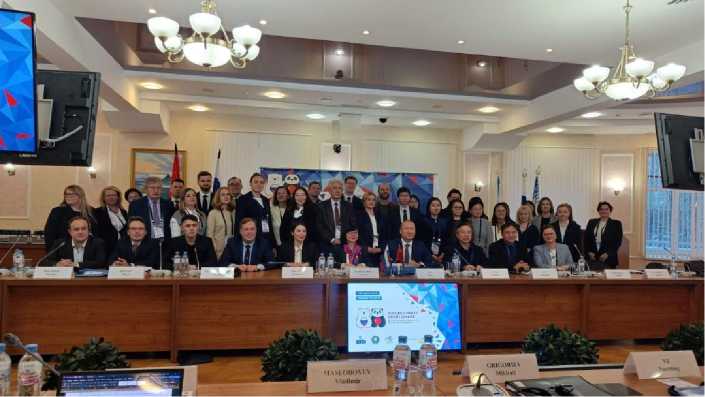
Fig. 1. Participants of the plenary session, 11 December 2023, Northern (Arctic) Federal University.
Outcomes
The three-day seminar program started with a plenary session with the leading Russian and Chinese experts on international multilateral relations in the Arctic. Reputable scientists, officials, diplomats, youth leaders and media representatives took part in the plenary session. Welcoming the participants, the speakers noted the significance of the events for the development of mutually beneficial cooperation between Russia and China. It was stated that relations between the two states are reaching a new qualitative level of development.
For the Chinese side, the seminar is important due to the launch of the International Science and Technology Cooperation Initiative adopted in 2023 1, which plans to expand open, fair and equitable international scientific and technological cooperation for the benefit of all countries and to form a global scientific community.
The welcome address on behalf of the Consulate General of the People’s Republic of China in St. Petersburg to the participants of the Russian-Chinese seminar states that:
“Science, technology and innovation (STI) are an important driving force for the development of human society and an important means to address global challenges. Currently, the world is undergoing profound changes, which pose more and more serious challenges for humanity.
Today, more than ever before, human society needs international cooperation, openness and exchange of experience. Interaction within the framework of research activities to find solutions to global problems, jointly confront the challenges of the time and promote peaceful development is relevant.
Understanding the need to develop open, fair and equitable international scientific and technological cooperation for the benefit of all, regardless of borders, and with the goal of jointly forming a global scientific and technological community, the Ministry of Science and Technology of the People’s Republic of China adopted the International Science and Technology Cooperation Initiative on November 6, 2023.
The main principles of the Initiative are:
-
• Maintain a commitment to scientific activity, support scientific ethics, and develop technology for the benefit of humanity.
-
• Strive for innovative development, promote the diffusion of new technologies, work together to develop connectivity in the digital age, and accelerate the global transition to low-carbon development.
-
• Adhere to the principle of open cooperation, be committed to open science regardless of borders, and promote an open international ecosystem of scientific and technological cooperation.
-
• Adhere to the principles of equity and inclusiveness, mutual respect, fairness, and encourage all countries and research organizations to participate in international scientific and technological cooperation on equal terms.
-
• Strengthen solidarity and coordination. In the face of urgent global challenges in areas such as climate change, health, environmental protection, energy and food security, countries should work together to advance the implementation of major international
REVIEWS AND REPORTS
Anton V. Vasilyev, Konstantin S. Zaikov, Lyubov A. Zarubina, Inga M. Zashikhina … scientific programs and projects and achieve breakthroughs in major scientific and technological challenges concerning the future of mankind.
-
• Strive for win-win outcomes for all, uphold genuine multilateralism, explore a new model of win-win global cooperation on STI, and ensure that the STI achievements are shared by all.
The presented International Science and Technology Cooperation Initiative perfectly demonstrates China’s commitment to promoting science diplomacy and maintaining an open, mutually beneficial dialogue in the world in general and in the Arctic in particular. This makes today’s expert seminar on the development of scientific cooperation between China and Russia extremely relevant.”
The plenary session was opened by a report “Cooperation Zone? Transformation of the world order and global governance in the Arctic” by Yulia Yuryevna Melnikova, program manager at the Russian International Affairs Council, which presented the current vision of the transformation of the world order and global governance in the Arctic, proposed initiatives to establish norms for cooperation, develop common standards, coordinate between the national strategies of the countries involved, and promote environmentally friendly solutions for the Arctic.
The issues of Chinese-Russian cooperation in the field of scientific diplomacy in the Arctic were raised in the plenary report by Alexander Sergunin, professor of the Department of Theory and History of International Relations of St. Petersburg State University. He mentioned several potential and existing platforms for the development of scientific diplomacy between the two countries, which include joint research projects, scientific publications, conferences, development of scientific infrastructure, and organization of expeditions in high latitudes. The professor noted that Chinese-Russian relations in the field of scientific diplomacy are developing quite dynamically and have good prospects for the future.
Professor Liu Hao, executive director of the School of Global Governance at the Beijing Institute of Technology (PRC), shared his vision of better Arctic governance. He noted that, according to the approach adopted in China, challenges and opportunities are interconnected. “Identifying challenges and opportunities in the Arctic is a complex issue and cannot be addressed in one meeting or conference. However, seminar participants have the opportunity to develop their own vision and present it to decision-makers, engaging in collaboration and formulating joint projects,” stated Professor Liu Hao in his speech. The outcomes of the discussions could significantly impact the future environmental landscape, security dynamics, energy supply routes and Arctic shipping.
A scientific and educational center on Spitsbergen in the Pyramida village was presented as another platform for the possible development of international cooperation. According to Dmitriy Negrutsa, Advisor to the General Director of the FSUE “State Trust ‘Arktikugol’” of the Ministry of the Russian Federation for the Development of the Far East and Arctic, such countries as China, Brazil, India, Turkey and Thailand have already expressed interest in this project. It is planned to
REVIEWS AND REPORTS
Anton V. Vasilyev, Konstantin S. Zaikov, Lyubov A. Zarubina, Inga M. Zashikhina … conduct research on climatic, environmental, biological, geological and many other scientific aspects on the basis of the centre.
The directions of Russian-Chinese scientific cooperation in the development of logistics of the Northern Sea Transport Corridor were analyzed by Mikhail Grigoryev, leading researcher at the Primakov National Research Institute of World Economy and International Relations of the Russian Academy of Sciences, director of the consulting company “Gekon”. In his opinion, the successful NSR transportations to China this year are likely to be continued.
The researchers discussed in detail the directions set at the plenary session within the framework of three parallel thematic platforms on the most pressing issues of the development of international scientific diplomacy in the Arctic: Section 1: “Science diplomacy in the context of geopolitical challenges”; Section 2: “Science diplomacy in the context of transport and logistics development”; Section 3: “Science diplomacy in the context of environmental and climate risks”.
The section “Science diplomacy in the context of geopolitical challenges” highlighted not only the challenges of science diplomacy in the Arctic, but also emerging opportunities and mechanisms for their use. It is important that understanding of how Arctic diplomacy, governance and cooperation are interconnected with and contribute to the broader security, foreign policy, economic and social interests of countries in the Arctic region and beyond is developed.
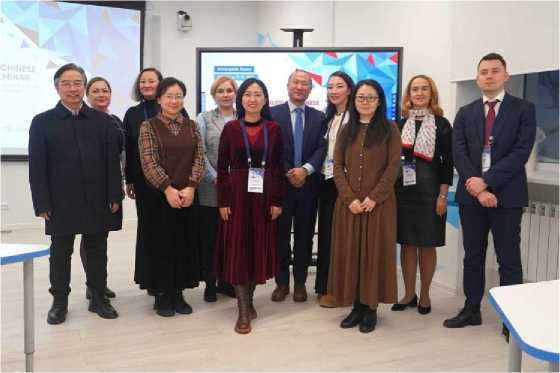
Fig. 2. Participants of the section “Science diplomacy in the context of geopolitical challenges”, December 12, 2023, Arkhangelsk.
The section “Science diplomacy in the context of transport and logistics development” focused on the most important topic: the development of the Northern Sea Route. Experts shared the latest data and analytical conclusions on the future of maritime logistics and transport communications in the Arctic. The resolution of this section includes the conclusions of the seminar participants, which will allow working out specific steps towards further development of cooperation between Russia and China in this area.
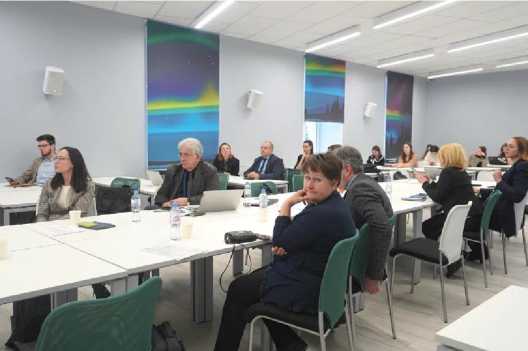
Fig. 3. Participants of the section “Science diplomacy in the context of transport and logistics development”, December 12, 2023, Arkhangelsk.
The speakers of the section “Science diplomacy in the context of environmental and climate risks” discussed the relevance of productive dialogue with all participants of the Arctic space and interested partners. In addition, they addressed the task of creating a mechanism to increase the motivation of researchers and teachers participating in international initiatives. Thematic research project competitions are still important. They should be organized at the interstate level.
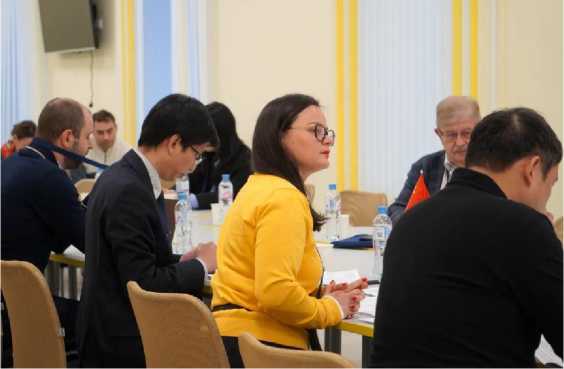
Fig. 4. Participants of the section “Science diplomacy in the context of environmental and climate risks”, December 12, 2023, a rkhangelsk .
The cross-cutting theme of the seminar was the discussion of issues related to the language of scientific communication and preparation of joint scientific publications of international format, organized within the framework of the international school “Communication in a global context”. Two sessions brought together speakers with experience in publishing scientific works. The focus was on written scientific communication as a tool for exchanging ideas within the scientific and professional community.
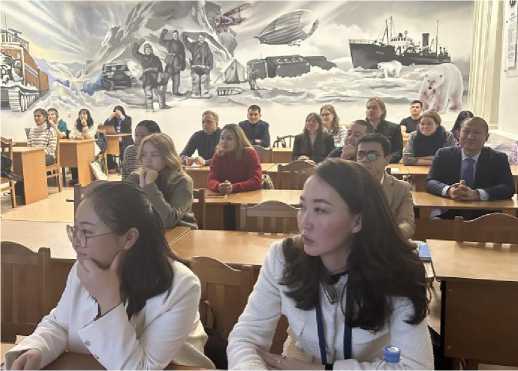
Fig. 4. Participants of the international school “Communication in a global context”, December 12, 2023, Arkhangelsk.
The results of the work of the sections were presented on the final day of the Russian-Chinese seminar on December 13, 2023 in the format of recommendations for constructive bilateral partnership in the professional field of Arctic research, including for presentation through the activities of the Permanent Russian-Chinese Intergovernmental Working Group on Cooperation in the Arctic.
Liu Hao, Professor and Executive Director of the School of Global Governance at the Beijing Institute of Technology, highlighted the following emphases of the results of the sections.
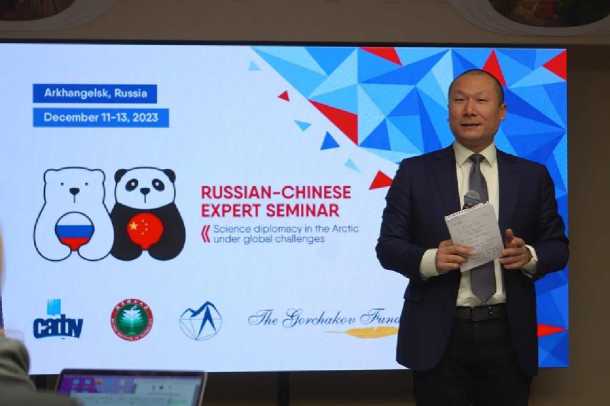
Fig. 5. Professor Liu Hao, December 13, 2023, Arkhangelsk.
One of the challenges, according to Professor Liu Hao, is the suspension of the Arctic Council and the blocking of initiatives and cooperation with Russia, the lack of a platform for dialogue in the Arctic region. This position not only hinders the work of bilateral, regional and global platforms, but also disrupts the harmonious interaction of science, diplomacy and governance, data and information sharing in the Arctic region. This obstacle not only complicates scientific activities, but also increases the cost of Arctic research.
However, along with the challenges, there are opportunities as well — diversification of cooperation in the Arctic, expansion of Russia’s dialogue with the countries of the Pacific region, Latin American countries, and BRICS.
According to experts, BRICS, the Shanghai Cooperation Organization, the Association of Technical Universities of Russia and China, the Northern Forum for Sustainable Development and a number of other organizations can contribute to the development of scientific diplomacy in the Arctic. The creation of new platforms for the development of youth cooperation in the fields of science, diplomacy and management is welcomed. Research initiatives such as the “Arctic Floating University”, the school “Russia in the Arctic Dialogue: Global and Local Context” and others can work as a basis for expanding multilateral ties. Scientific seminars, forums, international schools and research expeditions are well-established forms of organizing international dialogue and should be used for the benefit of Arctic development.
The leading role of universities in science communication is of paramount importance to closing existing gaps. Universities are becoming agents of change in their efforts to promote innovative knowledge, fresh perspectives and public policy. The new role of universities makes them indispensable agents of international public policy and expert guides in new global contexts.
Professor Liu Hao noted the following as proposals to the governments of the Russian Federation and China:
-
1. Invest more in activities organized by universities to develop Arctic science diplomacy and governance.
-
2. Establish a special research grant in the area of science diplomacy and governance in the Arctic within the framework of the programs of national science foundations.
-
3. Develop funding opportunities for educational programs and Arctic academic mobility (exchange) programs for teachers and students.
-
4. Delegate greater opportunities to representatives of the Chinese government and scientific community to speak on behalf of Russia at various multilateral, regional and bilateral platforms to promote information and strengthen the “voice of Russia”.
Anton Vsevolodovich Vasilyev, Vice-President of the Association of the Polar Explorers of the Russian Federation, Advisor to the Rector for International Activities of Northern (Arctic) Federal University, makes the following conclusions based on the results of the seminar.
-
1. The principle of open science proclaimed by China implies its readiness to cooperate with all Arctic states or, in other words, to collect information from everywhere. Its current perception of the Arctic is largely shaped by contacts with Western Arctic states and the Arctic Council. At the same time, expanding scientific ties with Russia objectively show China that the main and most valuable knowledge about the Arctic is concentrated in Russia. Taking into account the ongoing transformation of China into the world’s leading economic, scientific and technical power, many Western Arctic states are actively developing scientific ties with China on Arctic
-
2. In relation to the PRC, Russia will act as a supplier of knowledge on Arctic topics. In the course of subsequent interaction, it is necessary to define more clearly Russia’s own interest — in addition to the political one — in scientific cooperation with China on the Arctic. It is also important to outline practical steps to support Russia’s policy in the region. It is necessary for Chinese partners to understand the specifics of investment, applying technologies in the Arctic, transit along the Northern Sea Route and its development.
-
3. Promoting scientific interaction in the Arctic with China will help to attract other BRICS states to cooperation in this area and will serve to strengthen BRICS as one of the system-forming international organizations. In addition, the Russian experience of cooperation with China may be valuable for establishing interaction on Arctic issues with other interested non-Arctic states.
-
4. The discussion revealed three main areas of mutual interest for continuing and expanding Russian-Chinese scientific Arctic cooperation. The first direction, political, concerns the protection and promotion of the national interests of the two countries in the context of the ongoing restructuring of the world order, the emergence of new security threats in the Far North, and the objective increase of the Arctic role in world affairs. The interaction of scientists and universities will contribute to the understanding and predictability of ongoing processes, the expansion of practical policy tools, the timely neutralization of emerging threats, and the strengthening of the stabilizing and constructive influence of Russian-Chinese relations in world and regional affairs. The second direction, socio-economic, is associated with new opportunities for the development and use of Arctic natural resources and transport routes while observing the principles of sustainable development. It is important to apply the achievements of the technological revolution and to develop professional personnel. The third direction is climatic and environmental. It is related to the study of the role of the Arctic in the processes of transformation of the Earth’s climate. It is necessary to use the opportunities to influence ongoing natural processes and overcome new challenges.
issues. Russia has opportunities to win a kind of competition for China, but this requires systematic and active work.
Chinese experts assess the Arctic region as no less sensitive than the Antarctica and the South China Sea, which they are accustomed to analyzing. The importance of equal and mutually beneficial multilateral cooperation within the Arctic Council is recognized. The prospect of splitting the Arctic into a “NATO zone” and a “Russian zone” is perceived by the Chinese side as a dangerous situation. Russia’s turn towards non-Arctic states in the study and development of the Arctic is beneficial for China. The role of scientific exchanges in international cooperation in the Arctic and regarding the Arctic is defined as extremely significant. In this context, science diplomacy is of particular importance. A precise selection of competent partners is necessary. Chinese colleagues note NArFU, as well as RAARC, as valuable partners for scientific cooperation in the Arctic.
Both sides of the seminar focused on the development and use of Arctic logistics routes, especially the Northern Sea Route, as well as the development of hydrocarbon production in the Arctic, with an emphasis on the use of modern technologies, including artificial intelligence. The development trends and problems of the Northern Sea Route were discussed in detail, including issues of safety and ice forecasting, possible new directions and projects of Russian-Chinese interaction in this area. The prospects for digitalization of production in the oil and gas industry and the economy of big geodata were addressed.
The participants considered both general fundamental issues of solving environmental challenges in the process of Arctic development, and specific successful projects for studying the state and preservation of the Arctic environment. Chinese scientists, in particular, discovered an increase of polycyclic aromatic hydrocarbons in Arctic waters of Pacific origin. Russian scientists shared their experience of operating a carbon test site, features of the development, operation and disposal of electronic devices in the Arctic, and the results of research of microplastic removal into the White and Barents Seas. The issues of sustainable aquaculture as a condition for ensuring food security were discussed. A great potential for expanding interaction between Russian and Chinese experts on climate and environmental issues was revealed.
Conclusion
The Russian-Chinese expert seminar “Science diplomacy in the Arctic under global challenges” became a meaningful event, which the participants recognized as an event significant for the development of Russian-Chinese scientific cooperation and the search for solutions to global problems in the Arctic.
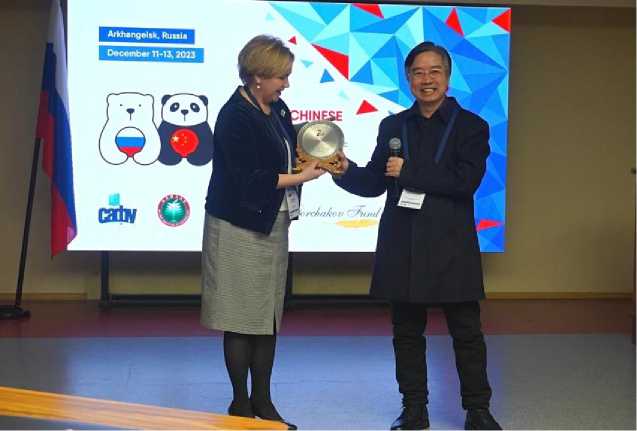
Fig. 6. Final session, December 13, 2023, Arkhangelsk.
The results of the seminar indicate that it is expedient to build scientific cooperation with China in the Arctic for the long term. There is obvious great mutual interest in such cooperation, complementarity of scientific potentials, understanding that cooperation between the two countries is an important part of Russian-Chinese global interaction. The sectoral priorities of international scientific and technical cooperation recently announced by China — climate change, healthcare, environmental protection, energy and food security — are to a large extent consonant with Russian ones and have a global dimension. A long-term perspective will make it possible to understand China’s strategy and intentions better, as well as to neutralize Chinese fears of the short-term opportunism of a new round of development of bilateral cooperation in the Arctic, involvement as a bargaining chip in some larger-scale geopolitical game. China’s better understanding of the Arctic should help to improve the “quality” of cooperation with it in this region.
The results of the seminar indicate that establishing long-term working contacts between scientists, universities and research centers will play a key role in expanding scientific cooperation between Russia and China in the Arctic. This is especially important given the complexity of the Chinese language and the peculiarities of Chinese psychology and worldview, which sometimes create obstacles to adequately understanding the Chinese and assessing their actions and ideas. Long-term stable cooperation programs and regular contacts between scientists are a prerequisite for overcoming such cultural barriers, avoiding errors in assessing the intentions of partners, and achieving maximum efficiency and mutual benefit in Russia-China cooperation.
accepted for publication 12.05.2024
Contribution of the authors: the authors contributed equally to this article
The authors declare no conflicts of interests
Arctic and North. 2024. No. 55

